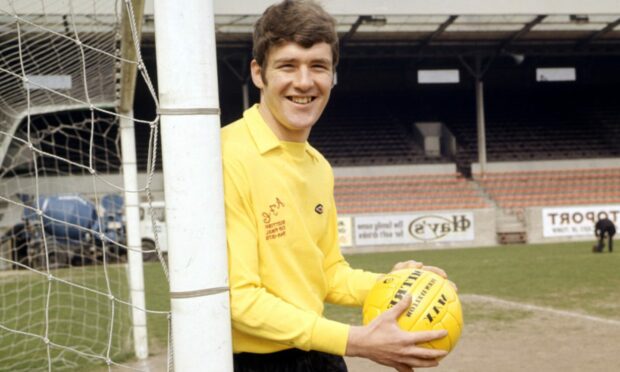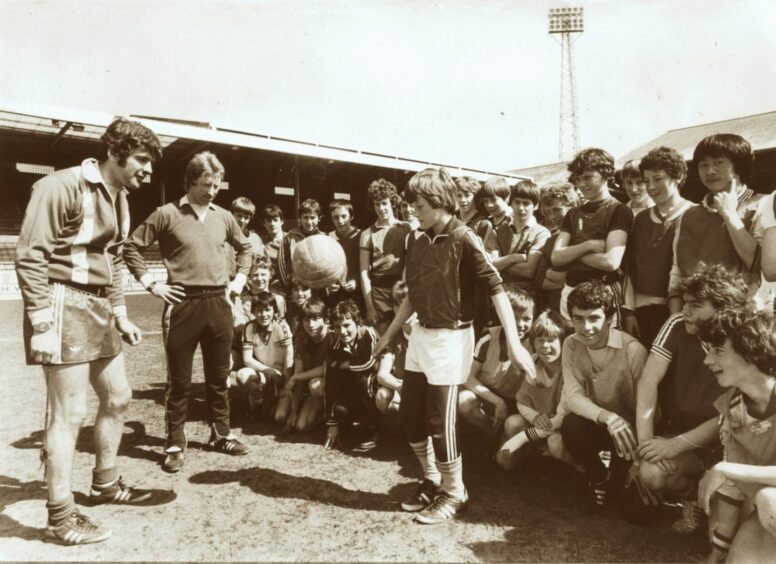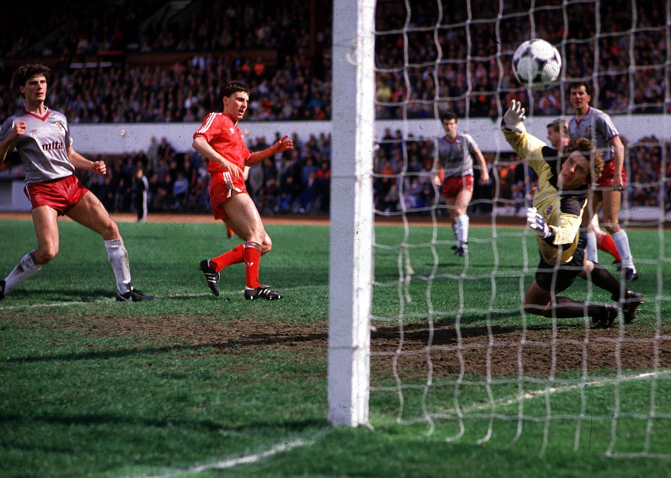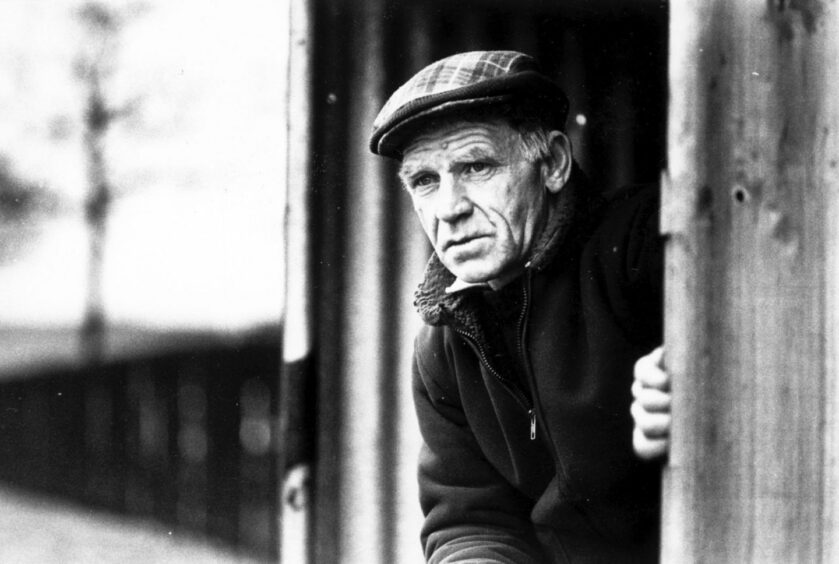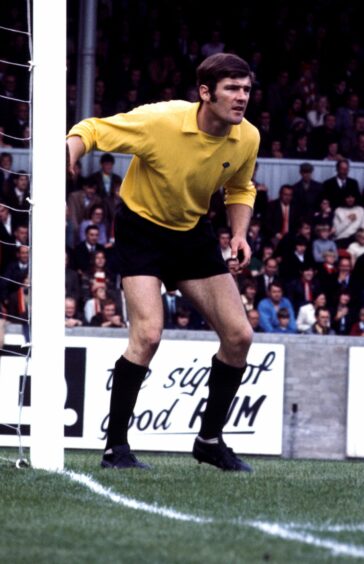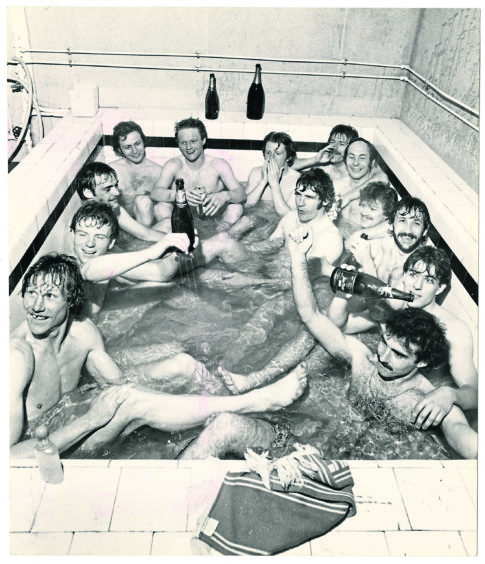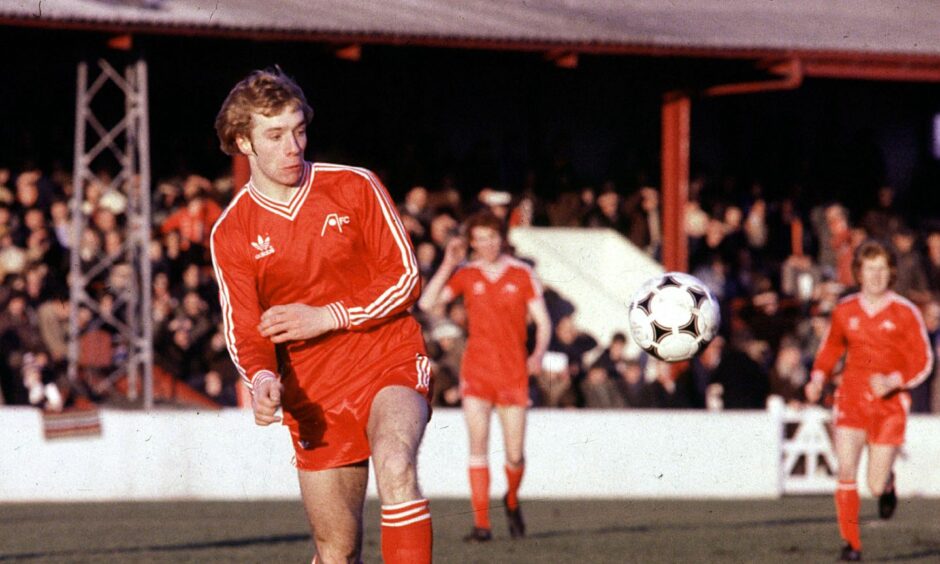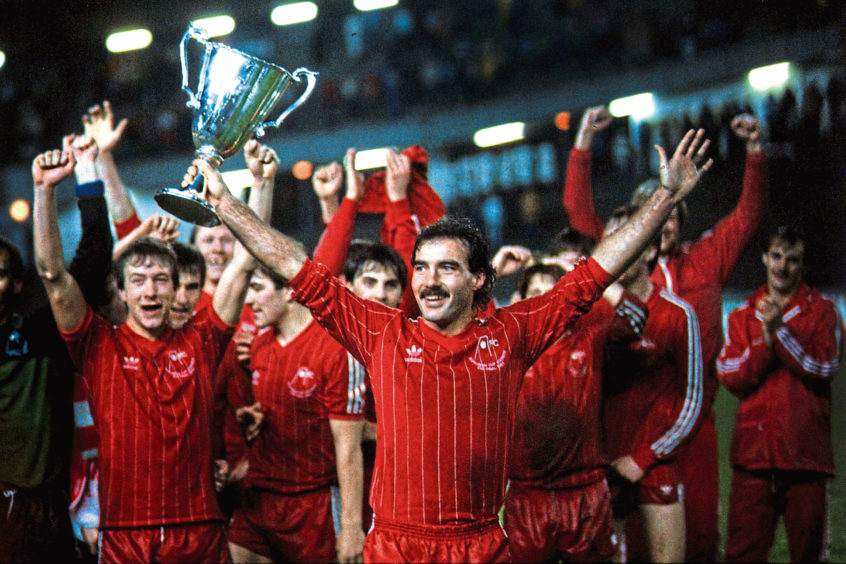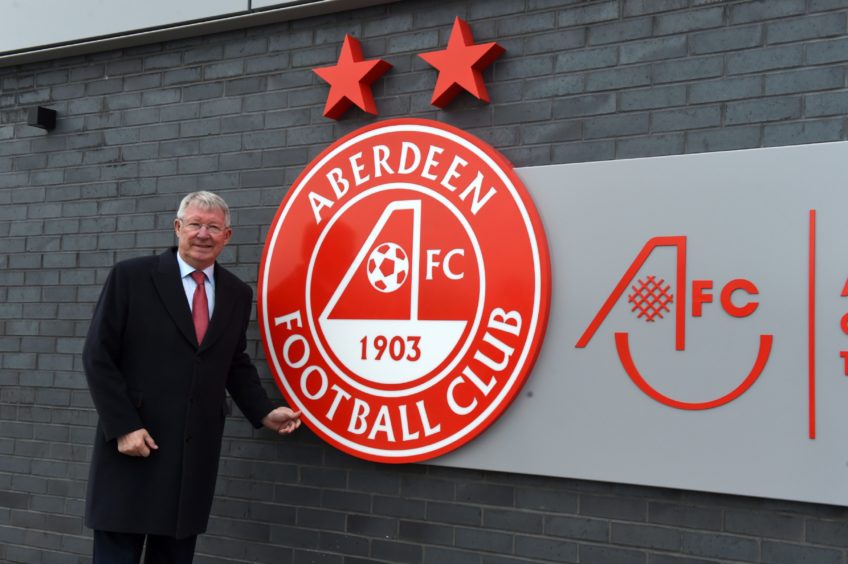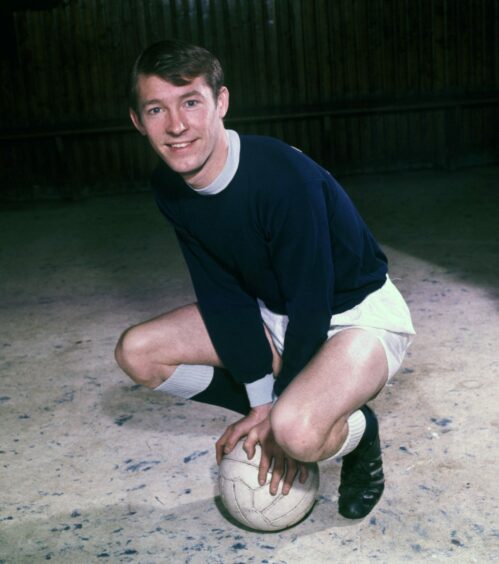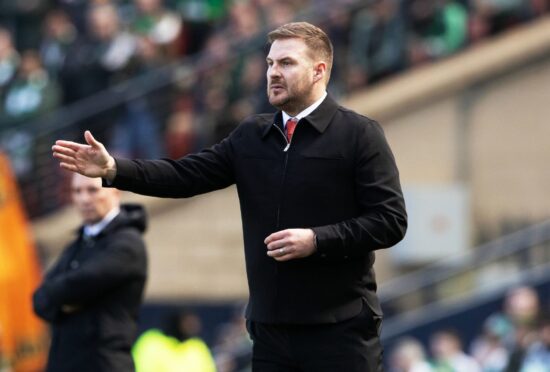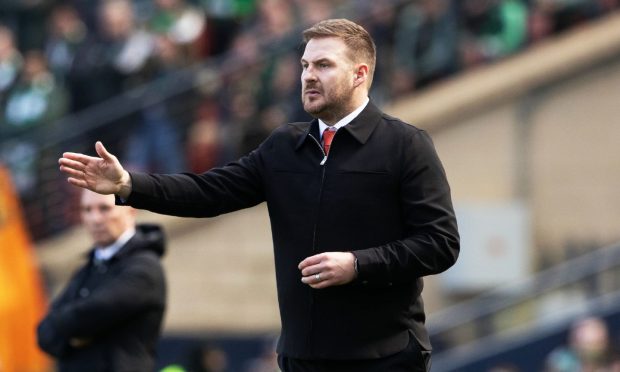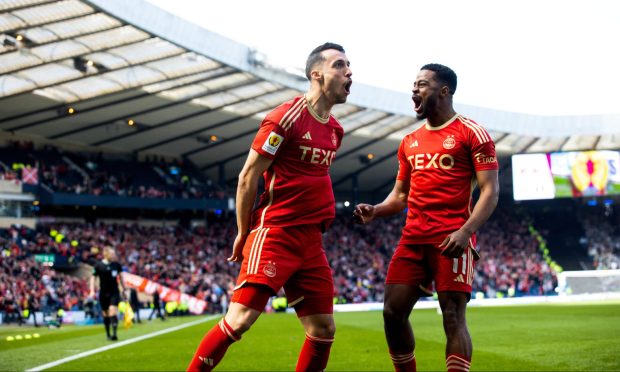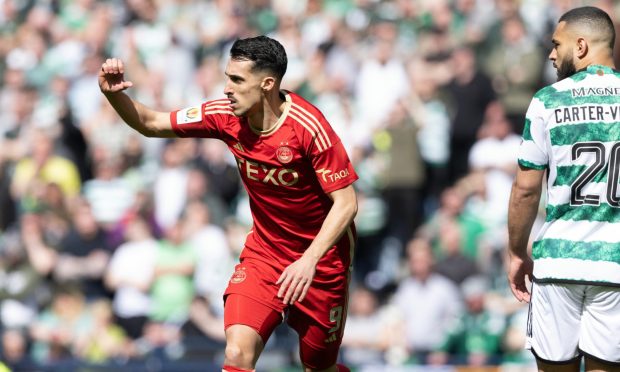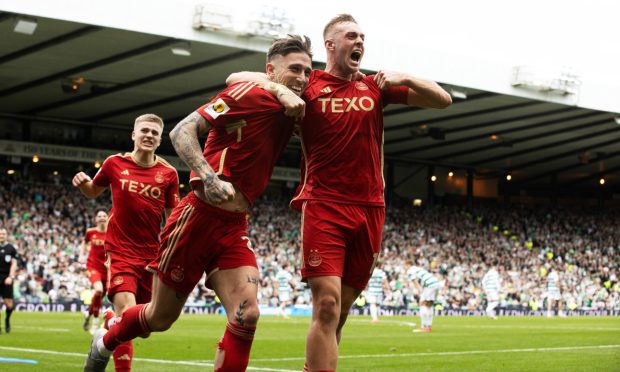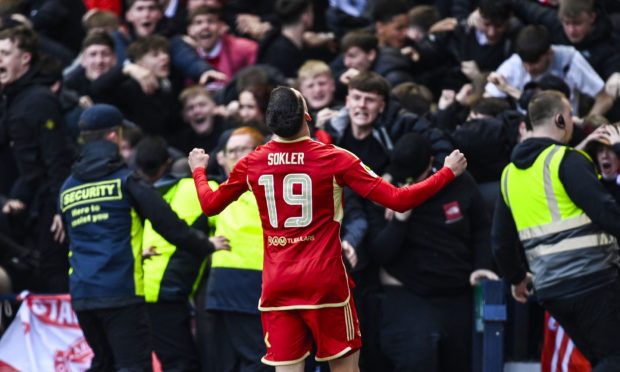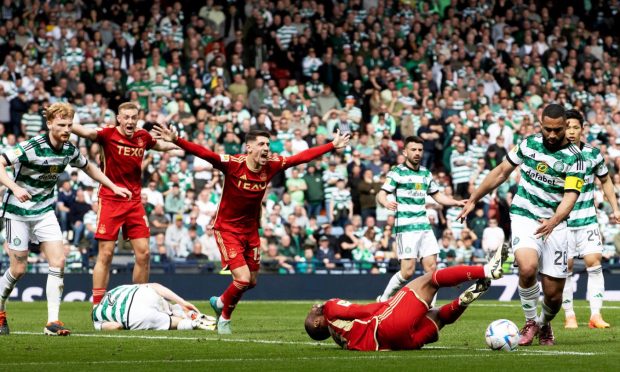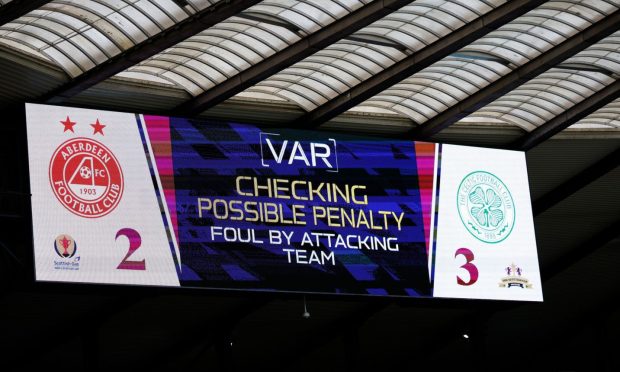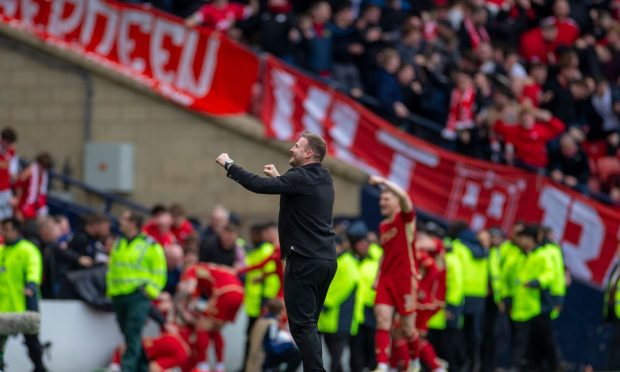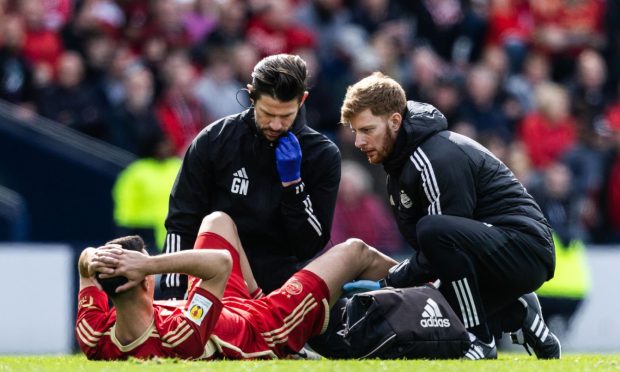As Sir Alex Ferguson prepares to return to Aberdeen for the unveiling of a statue in honour of his achievements at the Dons we will look ahead to the unveiling with former players and colleagues.
Bobby Clark’s wait to play for Sir Alex Ferguson at Aberdeen following his appointment in 1978 was delayed due to a hand injury.
But the former Dons goalkeeper believes being unable to play afforded him a coaching education he could scarcely have dreamed of.
Clark’s goalkeeping abilities were well known in Scottish football. After all, we’re talking about a Scottish international at the time of Ferguson’s appointment at Pittodrie.
But it was his coaching in his spare time, and the benefit to be had from it for the Dons, which piqued Ferguson’s interest.
Clark said: “Lenny Taylor and I took the Aberdeen Schools under-15 side to Ayr to play the second leg of a final.
“I’d come back from the World Cup in Argentina into Glasgow and I knew the game was on at an Ayrshire junior ground as Lenny had been in touch.
“Rather than go up to Aberdeen I wanted to go down to the game as Lenny and I had worked with that team which included the likes of John Hewitt, Neale Cooper and Brian Mitchell at that time.
“I met Lenny at the game which ended in a draw. It meant the two teams shared the cup in those days. Suddenly Alex appeared. It was typical of the sort of guy I would come to know.
“After saying hello and congratulations the reason for his visit became clear as he asked ‘who have we got signed from this team then?’
“I told him Neale Cooper was signed but for some reason we hadn’t signed John Hewitt. He was incredulous: ‘What? We haven’t signed John Hewitt?’
“Alex had John signed by the next week and we know how important a signing that turned out to be.
“It summed him up. He was totally invested in the foundation of the club from day one.”
Aberdeen manager displayed a keen interest in young players
Ferguson’s interest in young players who could serve the Dons would become a regular part of Clark’s working week.
The former Notre Dame University coach would often find himself joined not just by Ferguson for games but also legendary kitman and coach Teddy Scott – the Dons’ greatest ever servant.
For an aspiring coach like Clark, their presence was a gift he and Taylor revelled in.
He said: “I missed the early period of Alex’s arrival at the club as I worked a lot of the time with Teddy.
“I got to know him more through the youth program and what was clear was how unbelievably prepared he was.
“He knew all the opposition teams, their strengths and weaknesses, and he would go through things forensically when preparing for games.
“I got to know Alex quite well because of my work with the youth teams.
“The under-15s used to have a game on a Thursday night in the car park against the under-16s and all we had was street lights.
“Alex would have been there from 7.30am and he would always stay to watch the first half of the game every Thursday.
“There was a little asbestos dugout and there was room for three people in it. It would be Lenny and I either side with Alex in the middle while Teddy would always stand as he would be nipping away to run baths for after the game.
“When I think about it now I didn’t realise I was benefiting from such a great education from a future great manager on one side and Teddy, who was a positive influence on everyone.”
Bobby Clark – Aberdeen FC scout
Clark’s knowledge of the game was also utilised by his new manager in other ways too and his unavailability for first team duty led to another task being sent his way.
He said: “It’s funny, one of the first things he did when he arrived was organise my testimonial.
“It turned out I wasn’t able to play in the game after fracturing my thumb in the pre-season game against Spurs and my first game back was the second leg of the Fortuna Dusseldorf game months later.
“He sent Pat Stanton and me to Bulgaria to scout Marek Dimitrov of Bulgaria, the team we played before Fortuna Dusseldorf.
“He was very good to me by keeping me involved even though I was out injured.”
First league title was key
Clark’s working relationship with his manager may have differed from his team-mates but it did not take the goalkeeper long to see just how special his boss was as Ferguson led the club to the Premier Division title in 1980.
His first season had been a disappointing one with the club losing out on the League Cup after losing the 1978-79 League Cup final 2-1 to Rangers.
The response was to regroup, add Hewitt and Cooper to the first team squad, then lead the team to the championship.
Clark believes a league title was inevitable for the Dons team of that period with former boss Billy McNeill leaving a strong squad behind him when he left for Celtic in the summer of 1978 but it was Ferguson who took on the mantle.
He said: “We could have won the league in 1978 under Billy McNeill then Alex lost the League Cup final in 1979 so winning the league in 1980 was a big moment collectively for the team.
“Winning the league gave the team confidence but I think it really cemented Alex’s standing at the club.
“Billy had been a very strong personality and it was big shoes to fill but Alex was up for the challenge and the manner in which he led us to the title was incredible.
“We had one defeat in our last 20 games to win the league which was fantastic but what stands out even more was the fact we only had three home matches in our final 11 games of the campaign.
“We thought it was a tall order at the time but Alex was never afraid to make big decisions in games and we never went into any of those matches thinking about anything other than trying to win it.
“That was where the need to win games in Glasgow was born really.
“His big thing was always if we’re going to do anything in Scotland we’ve got to Glasgow and beat them on their home ground.
“Two of those away games were at Parkhead and one was at Ibrox. We drew with Rangers and beat Celtic both times and on reflection it was that run-in was where the team came of age.”
Dons should have had more silverware to reflect their dominance
It’s a measure of how good Ferguson’s title-winning side was that Clark still has a tinge of regret that the championship was all the club had to show for the team’s efforts that season.
He said: “When you look back on it we had a good team when we won the league in 1980 but we should have won the League Cup too.
“Alex McLeish had broken into the team but was playing in midfield initially. It made us really strong centrally.
“Steve Archibald had 12 goals that season in the league but people forget how important Drew Jarvie was to that side. He played as an attacking midfielder and he got 12 goals too. We were so strong.
“The rounds up to the semi-final were contested over two legs back then and we beat Rangers and Celtic home and away.
We then beat Morton in the semi-final to reach the final and to lose to Dundee United in a replay was a huge disappointment.
“We just didn’t start that night and they were very good. It was their first trophy I think and it was the start of the New Firm rivalry in many ways.”
Clark proud to see the Dons conquer Europe
Further success would follow before Clark left the club in the summer of 1982 and as his coaching career got underway in Zimbabwe, the Dons reached new heights by beating Real Madrid to win the European Cup Winners’ Cup.
The quality was there in the Dons squad but Clark was amazed to see just high the club soared.
He said: “Hand on heart I don’t think I would have predicted how good the team became in Europe after I left.
“I would have predicted Aberdeen dominating domestically and the rise of Dundee United made it special. It was good for the game in Scotland.
“I can remember being away in Belgium with Scotland for a trip where both the full team and the under-21a played.
“On the flight back Willie Miller was with me and he commented on how many Aberdeen players we had there.
“The young players who came in were exceptional.
“My replacement Jim Leighton was fantastic and you had Neale Cooper, Neil Simpson, Eric Black, John Hewitt all coming in to strengthen.
“I don’t know if we’ll ever see the likes again. It’s harder now with the way freedom of contract has changed things.
“Whenever you have a really good player someone is looking at them straight away and the money on offer in the Premier League makes it impossible for any Scottish team to compete against it.
“I wonder would our young players have stayed as long as they did if it was today? I don’t know.
“But what the club achieved with Alex at the helm will be unsurpassed.”
Success has not changed Sir Alex
Sir Alex Ferguson’s career would reach even greater heights after he left Aberdeen as he solidified himself in world football as one of if not the greatest manager in history.
He won 11 trophies in Scotland, 10 with the Dons, before adding another astonishing 38 to his collection during a glittering career at Old Trafford.
But for all his success, Clark insists his former boss has not changed.
He said: “No-one could have predicted Alex going on to dominate the top league in the world as he has when he left Aberdeen.
“It has been so hard for anyone to follow him but the great thing for me is that he hasn’t changed.
“He is confident and he can be quite strong in some situations but he has a really human touch to him too.
“I always remember him carrying the hamper in at Celtic Park before one of our games with the bus driver.
“I don’t know if he did it laterally but I remember him ushering everyone in while he helped get the hamper in off the bus.
“Given the size of United I doubt he had to do that during his time there but it showed how he saw himself. If it was good enough for him it was good enough anyone.
“He came out to visit me at the University of Notre Dame which was great and spent a couple of days on campus.
“Sir Alex hadn’t changed. He was straight over to the secretary and the staff to introduce himself.
“He’s very good around people and not just big names. He showed how to handle people from the lady in the canteen and people who work around the club to the chairman.
“He gave everyone their place and recognised their contribution.”
Ferguson was as competitive on the pitch as he was off it
Bobby Clark was on World Cup duty when news broke of Ferguson’s appointment at Pittodrie.
He had faced Ferguson’s St Mirren team during his new manager’s time at Love Street but it was Ferguson the forward who initially came to mind.
He said: “Stewart Kennedy and I first heard about our new manager when we were in Argentina when the World Cup was on.
“We’d heard Billy McNeill had gone to Celtic and Alex Ferguson had been installed as the new Aberdeen manager.
“I knew Alex as an opponent. I’d played against him way back when I was with Queen’s Park and he was with St Johnstone then Dunfermline and Rangers.
“I played against him in the quarter-final of the Scottish Cup in 1970 when it was Alex and Andy Roxburgh as the twin strikers for Falkirk so I took a few kicks and bruises from him.
“When he was with Rangers I ended up having 10 stitches in an ear. You certainly knew you were in a game when Alex was playing.”
